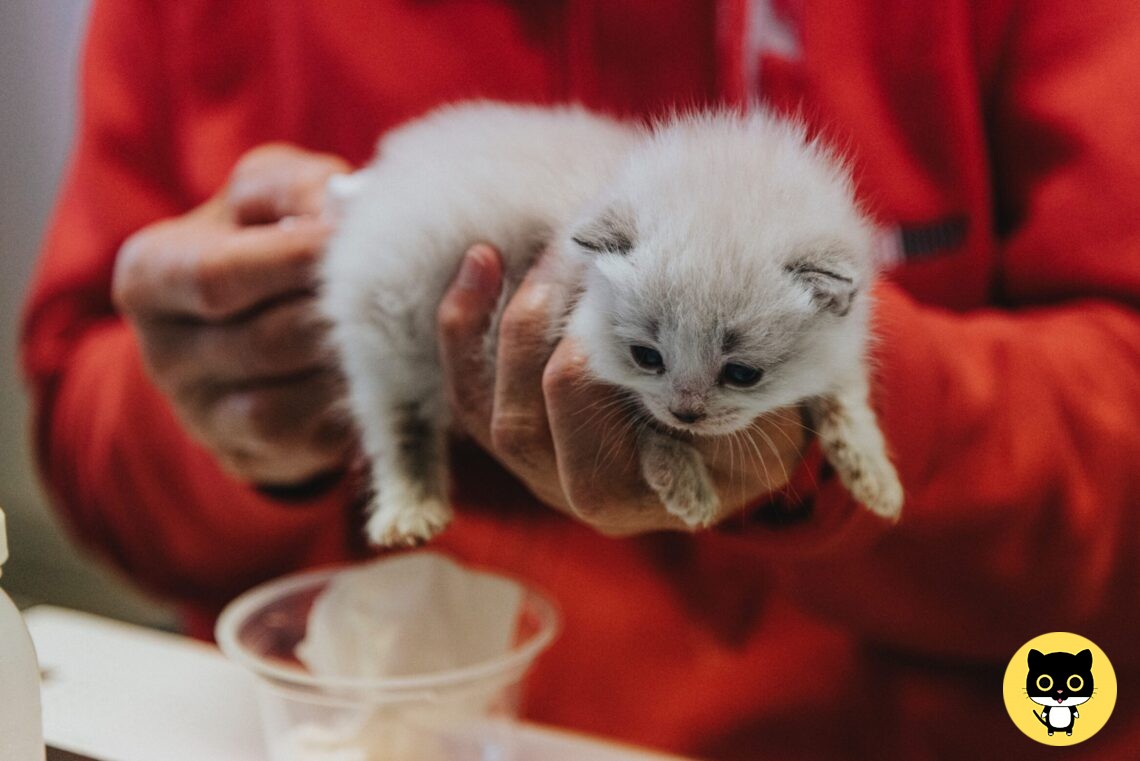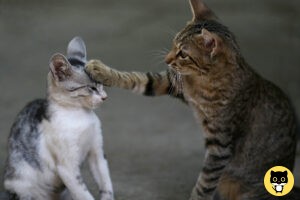Kittens are vulnerable to many illnesses, some of which can be serious or even fatal. Knowing the signs and symptoms of the most common kitten diseases can help you take action quickly and save your kitten’s life.
The most common kitten diseases include Feline Leukaemia Virus (FeLV), Feline Immunodeficiency Virus (FIV), Feline Distemper (FVRCP), Feline Infectious Peritonitis (FIP), and Toxoplasmosis. These diseases can be contracted through contact with other cats, exposure to contaminated food and water, or through fleas, ticks, and mosquitoes.
Feline Leukaemia Virus (FeLV)
Feline Leukaemia Virus (FeLV) is a contagious virus that affects cats of all ages. It is spread through contact with saliva, urine, and feces from infected cats, or through shared food and water bowls. FeLV weakens the cat’s immune system, making them more susceptible to other illnesses and infections.
FeLV can cause a variety of symptoms, including fever, loss of appetite, weight loss, lethargy, and diarrhea. In some cases, it can lead to anemia, blood disorders, and even cancer.
Feline Immunodeficiency Virus (FIV)
Feline Immunodeficiency Virus (FIV) is a contagious virus that affects cats of all ages. It is spread through contact with saliva, urine, and feces from infected cats, or through shared food and water bowls. FIV weakens the cat’s immune system, making them more susceptible to other illnesses and infections.
Symptoms of FIV include fever, loss of appetite, weight loss, lethargy, and diarrhea. In some cases, it can lead to anemia, blood disorders, and even cancer.
Feline Distemper (FVRCP)
Feline Distemper (FVRCP) is an airborne virus that affects cats of all ages. It is spread through contact with saliva, urine, and feces from infected cats, or through shared food and water bowls. FVRCP weakens the cat’s immune system, making them more susceptible to other illnesses and infections.
Symptoms of FVRCP include fever, runny nose, sneezing, eye discharge, coughing, and vomiting. In some cases, it can lead to pneumonia, dehydration, and even death.
Feline Infectious Peritonitis (FIP)
Feline Infectious Peritonitis (FIP) is a contagious virus that affects cats of all ages. It is spread through contact with saliva, urine, and feces from infected cats, or through shared food and water bowls. FIP weakens the cat’s immune system, making them more susceptible to other illnesses and infections.
Symptoms of FIP include fever, loss of appetite, weight loss, lethargy, and jaundice. In some cases, it can lead to anemia, blood disorders, and even death.
Toxoplasmosis
Toxoplasmosis is a contagious parasite that affects cats of all ages. It is spread through contact with infected cats, or through contact with contaminated soil or water. Toxoplasmosis weakens the cat’s immune system, making them more susceptible to other illnesses and infections.
Symptoms of toxoplasmosis include fever, swollen lymph nodes, loss of appetite, weight loss, lethargy, and diarrhea. In some cases, it can lead to anemia, blood disorders, and even death.
Prevention Strategies for Common Kitten Diseases
There are several steps you can take to prevent your kitten from contracting the most common diseases. These include:
- Vaccinating your kitten against FeLV, FIV, FVRCP, and FIP
- Keeping your kitten away from other cats that may be infected
- Feeding your kitten a healthy, balanced diet
- Keeping your kitten indoors to reduce exposure to contaminated food and water
- Keeping your kitten’s litter box clean
- Treating your kitten for fleas and ticks
- Regularly cleaning and disinfecting your kitten’s bedding and toys
Vaccinations for Kittens
Vaccinating your kitten is one of the best ways to protect against the most common diseases. Vaccines help protect your kitten from the viruses that cause FeLV, FIV, FVRCP, and FIP. Talk to your veterinarian about the recommended vaccinations for your kitten.
It is important to note that kittens are more susceptible to disease than adult cats. Therefore, it is important to vaccinate kittens at a young age to help protect them against these illnesses.
Diet and Nutrition for Kittens
Providing your kitten with a balanced, nutritious diet is essential for their overall health and wellbeing. A good diet should include a variety of proteins, carbohydrates, vitamins, and minerals. You should also supplement your kitten’s diet with omega-3 fatty acids, which help keep their immune system strong. It is also important to always provide your kitten with plenty of clean, fresh water.
Does your kitten show any symptoms? Please register to leave a reply below and to post in the Forums.






